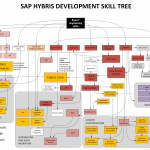
This chart shows a set of skills and knowledge needed for hybris developers. The pieces of knowledge are connected and grouped to allow you to see the dependencies and ultimately the big picture. Read More »
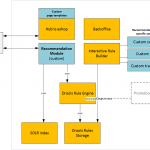
I managed to leverage hybris rule engine (Drools based) for the rule-based product recommendations. The existing hybris rule builder allows you to easily set up the comprehensive recommendation rules. Read More »
Introduction Let’s start with the session handling basics. When the user logs in, the session is created on one web server in the cluster. On subsequent requests, the load balancer may bounce that user to another web server which doesn’t… Read More »
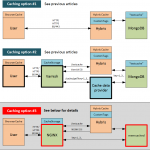
Today’s post is a follow-up to the previous articles about caching. I managed to integrate hybris with Nginx (as a reverse proxy) and memcached (as a storage for the cache). The key distinctive feature of this solution is that Nginx works with Memcached directly. Read More »
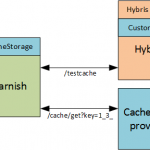
Varnish is an HTTP accelerator also known as a caching HTTP reverse proxy. You can install it in front of hybris and configure it to cache the contents. Varnish Cache is a very fast thing. It typically speeds up delivery with a factor of 300 – 1000x, depending on your architecture. However, your backend system should be compatible with Varnish to use all its features and speed. Default hybris isn’t. Last weekend I managed to integrate Varnish with hybris. This article demonstrates the approach and tells you about the way to it. Read More »
Caching is inevitable for a high-performance, scalable web application. There are different types of caching that have already been implemented in hybris. However, almost every solution require additional tools and improvements to make hybris more resilient to high traffic or page load time related requirements. Today’s article is about custom caching engine based on MongoDB (easily ported to any other NoSQL database). Read More »
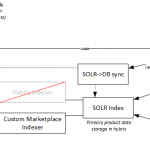
This proof-of-concept is about the hybris-based marketplace solution. It has 2 million products, thousands of categories and facets. All this stuff works well on the regular laptop. Read More »
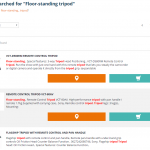
This post is about on how to make product classification attributes searchable and how to highlight the search results. Read More »
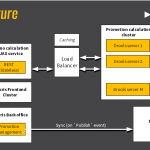
This post is about designing a solution where promotions are calculated for category and search pages. These pages all have a set of products. So the challenge is to calculate promo prices for every item according to the product-level promotion rules and to do it fast! Read More »
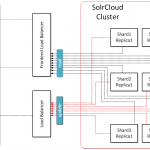
The traditional Hybris Solr cluster has a number of drawbacks, including a lack of failover and scaling capabilities. In this post, I explore SolrCloud as one of the possible options for resolving these issues. Read More »
